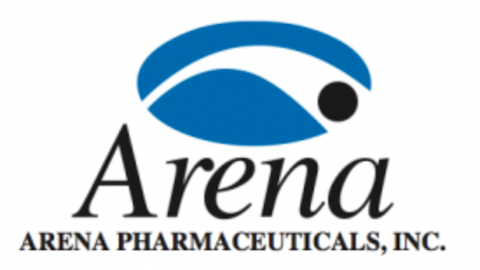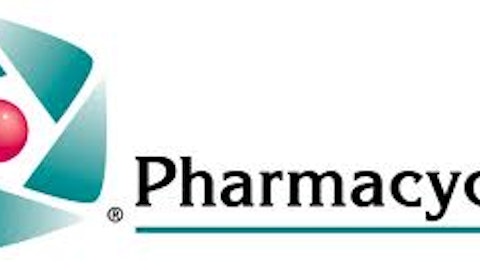Over the past decade, the Food and Drug Administration has taken multiple steps to improve the process by which drugs are developed and eventually brought to market. New designations like the breakthrough therapy label will allow experimental drugs that demonstrate a marked improvement over existing therapies to use data from early and mid-stage trials as the basis for a new drug application filing and review by the FDA.
One thing that hasn’t wavered throughout, though, is the FDA’s focus on safety. It might seem like every new drug comes with a laundry list of potential side effects, but the FDA is quite thorough in its safety review, requiring a lot of pre-marketing safety data for all drugs under review and quite a few post-approval safety studies as well.

Source: ppdigital, Deviantart.
One such group of studies that investors have been eagerly awaiting for are those for type 2 diabetes drugs. With 25 million people in the U.S. suffering from diabetes and 79 million more demonstrating signs of pre-diabetes, the prospect of long-term usage for glycemic balance medications is growing — as is the question of how safe these pills actually are over the long run.
Earlier this week, we finally got our first glimpse as to the answer when two type 2 diabetes safety studies were published in The New England Journal of Medicine whose primary endpoint was to show that the tested medications were superior to the placebo.
Diabetes drugmakers’ definitely maybe moment
The first study (known as Savor) involved AstraZeneca plc (ADR) (NYSE:AZN) and Bristol Myers Squibb Co. (NYSE:BMY)‘s DPP-4 inhibitor known as Onglyza, which was tested in a rather large pool of 16,492 patients. The results demonstrated that while Onglyza met the safety aspect of being non-inferior to the placebo, it did not stand out as superior relative to the placebo in reducing a patient’s risk of cardiovascular death, non-fatal heart attack, or non-fatal stroke. What the study did show is that Onglyza did provide a benefit in lowering glycolated hemoglobin levels and improved glycemic balance (as you’d expect), but also resulted in a 27% risk of heart failure relative to the placebo.
The other study (Examine) involved a type 2 diabetes drug developed by Takeda Pharmaceutical known as Nesina which was approved by the FDA earlier this year. Takeda’s study was only about a third of the size (5,380 patients) as AstraZeneca plc (ADR) (NYSE:AZN) and Bristol Myers Squibb Co. (NYSE:BMY)’ Onglyza, but the results were similar in that Nesina was neither inferior nor superior to the placebo.
Why the big stink about DPP-4 inhibitor safety you ask? The reason is the FDA doesn’t want to ever have another repeat of GlaxoSmithKline plc (ADR) (NYSE:GSK)‘s diabetes drug Avandia on its hands. Also a DPP-4 inhibitor, GlaxoSmithKline plc (ADR) (NYSE:GSK) pleaded guilty to criminal charges in 2012 that it knowingly failed to report safety data on Avandia and paid out a whopping $3 billion settlement. Prior to its recall, estimates are that Avandia may have caused between 50,000 and 100,000 deaths as a result of increased heart attack risk or other adverse side effects brought about by the drug.
The good news here is that the Savor and Examine studies appear to show that Onglyza and Nesina are no more dangerous to take than the placebo — in essence, little chance of another Avandia situation on our hands. The bad news is it isn’t exactly a resounding endorsement for DPP-4 inhibitors and would point to doctors needing to prescribe additional medication to help reduce a patient’s risk of a cardiovascular event like a heart attack or stroke.
What investors should really hone in on
More than anything, this data leaves the door open for a new class of type 2 diabetes medications, known as SGLT-2 inhibitors, to steal the show. Specifically, Johnson & Johnson (NYSE:JNJ)‘s Invokana is already approved in the U.S., while AstraZeneca plc (ADR) (NYSE:AZN) and Bristol Myers Squibb Co. (NYSE:BMY)’ Forxiga is approved in Europe and is due up for a second try at a U.S. approval in January.
Rather than working through the liver or pancreas as previous diabetes medications have, SGLT-2 inhibitors work in the kidneys and block glucose absorption, allowing the user to flush out excess glucose through their urine. Furthermore, SGLT-2 inhibitors helped induce weight loss in patients on top of improving their glycemic balance.
Of course, this isn’t going to be a safety cakewalk for SGLT-2 inhibitors, either. The original reason why Forxiga was issued a complete response letter in the U.S. was because of elevated risks of bladder and breast cancer associated with the drug. Needless to say, overcoming the FDA’s objections with concrete safety data won’t be easy.
Where does this leave us?
Following this data, I would feel fairly comfortable assuming that DPP-4 inhibitors are unlikely to see any expanded indications any time soon. If anything, these initial two studies seem to have typecast type 2 diabetes drugs solely as glycemic balance solutions and removed much of the hope that they reduced long-term cardiovascular event risk.
On the flip side, it provides a decent glimmer of hope for SGLT-2 inhibitors that they can step in with a more favorable safety profile and provide a differentiable drop in cardiovascular death risk. As we saw with Onglyza, it could be years before we have any large study data available that really delves into the long-term safety profile of SGLT-2 inhibitors, but for now they’re looking like a clear candidate to push DPP-4 inhibitors slowly out of the picture.
The article Diabetes Drugmakers and Their “Definitely Maybe” Moment originally appeared on Fool.com and is written by Sean Williams.
Fool contributor Sean Williams has no material interest in any companies mentioned in this article. You can follow him on CAPS under the screen name TMFUltraLong, track every pick he makes under the screen name TrackUltraLong, and check him out on Twitter, where he goes by the handle @TMFUltraLong.The Motley Fool owns shares of, and recommends Johnson & Johnson.
Copyright © 1995 – 2013 The Motley Fool, LLC. All rights reserved. The Motley Fool has a disclosure policy.





